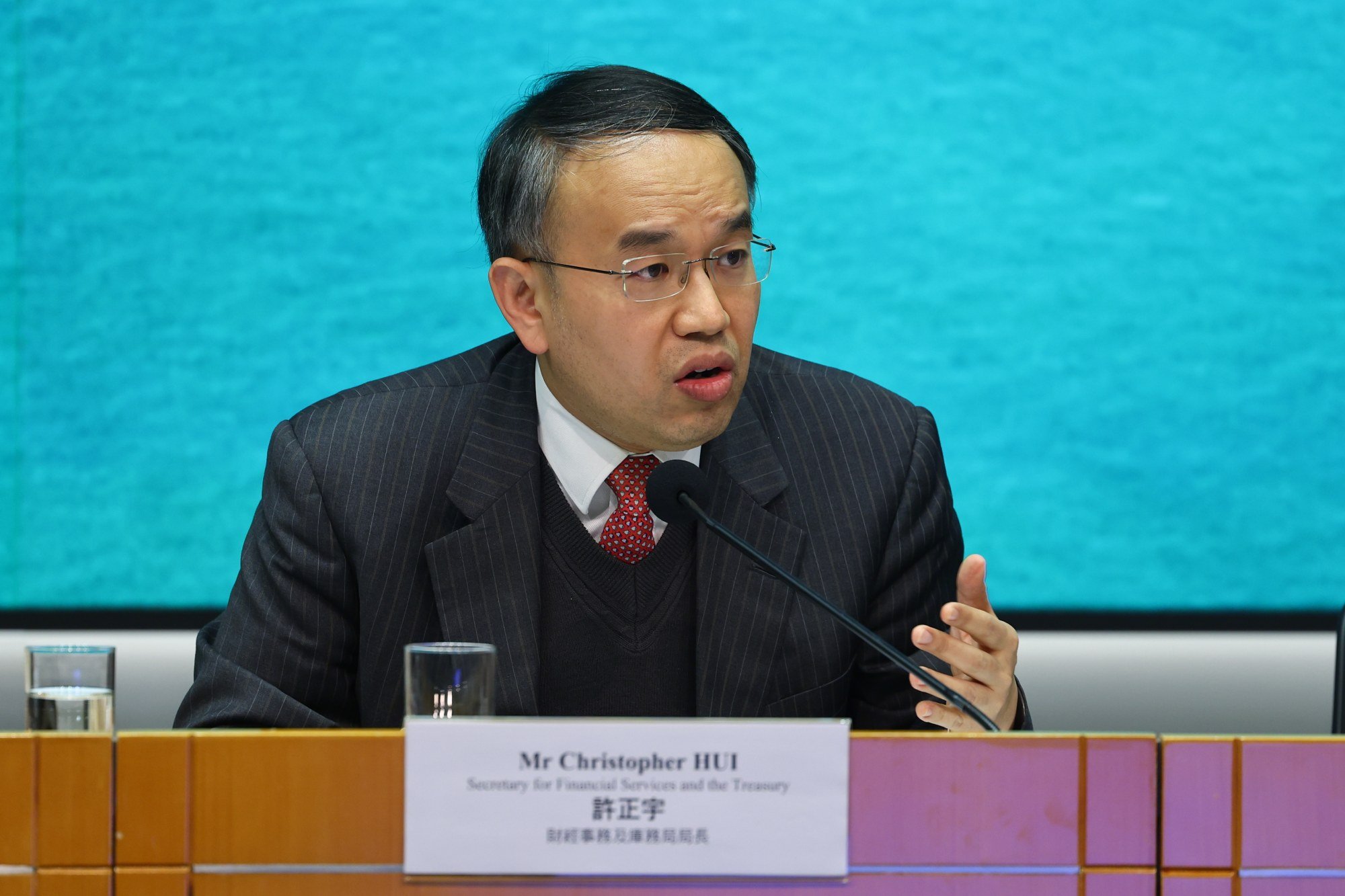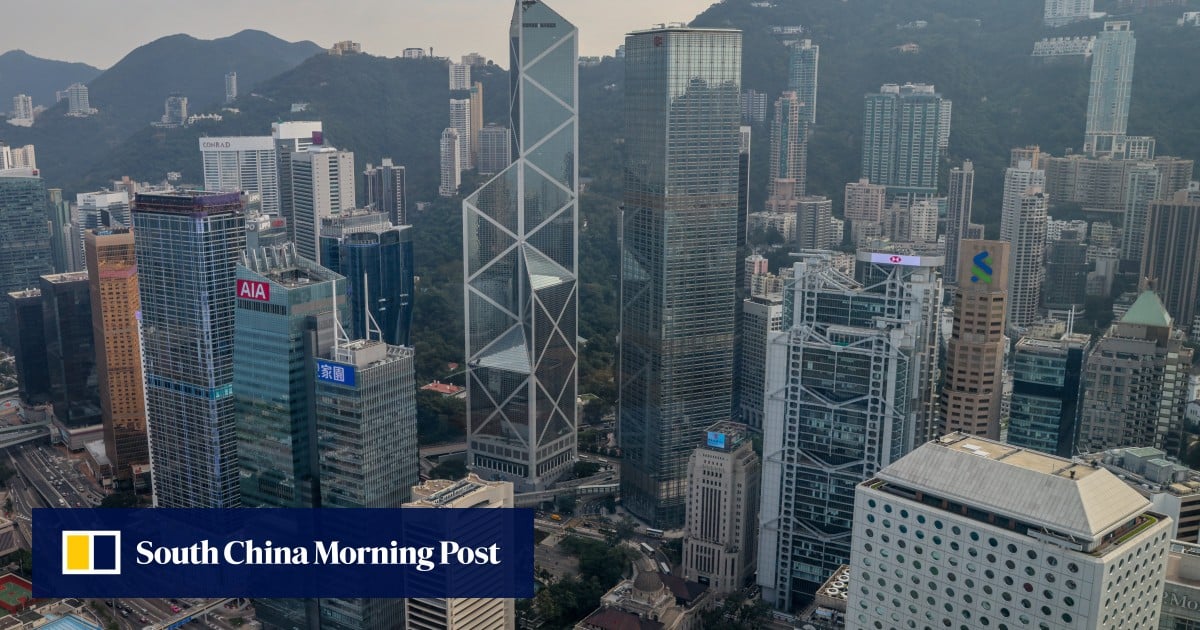The shortfall is expected to balloon to HK$101.6 billion (US$12.9 billion) at the end of 2023-24, far higher than the previous estimate of HK$54 billion, amid a substantial reduction in land premiums and income from stamp duty.
Secretary for Financial Services and Treasury Christopher Hui Ching-yu, appearing at a post-budget press briefing, said: “Regarding fiscal discipline, please rest assured … we have proposed a HK$500 billion debt ceiling and that will be soon submitted to the legislature for approval … so there will be an institution arrangement and safeguard to ensure that what we do is subject to scrutiny.”
The treasury minister was referring to the borrowing ceiling for the government’s green and infrastructure bond programmes, which were outlined in the city’s new budget on Wednesday.
The government planned to field the resolution to the Legislative Council on March 27.
As part of its fiscal strategy, the government plans to issue HK$120 billion in silver, green and infrastructure bonds for the 2024-25 financial year, with the figure ranging from HK$95 billion to HK$135 billion per annum for the subsequent four years.

Hui stressed that the proceeds from selling bonds would only be used for capital works projects or investments that offer long-term local benefits, rather than covering the government’s operating expenses.
The ratio for debt to gross domestic product (GDP) was projected to reach as high as 13 per cent in 2028-29 and “compared very favourably with other advanced economies”, he added.
At the start of the 2023-24 financial year, Hong Kong’s debt-to-GDP ratio stood at 4.3 per cent. The United Kingdom, United States and Singapore’s figures exceeded 100 per cent in 2022.
Hong Kong lawmaker Rock Chen Chung-nin, who also works as an investment manager, said bond issuance could serve as a short-term measure to buy time before the economy recovered and new industries backed by government investments could generate revenue to fill public coffers.
“If we still have a deficit in 2025-26, that will be four consecutive years of loss and might affect Hong Kong’s credit ratings … which might also affect the interest rate of our bonds,” he said.
Bond issuance could hardly be considered a long-term strategy as the government would need to repay them at some point or roll them over into new loans, the legislator said.
But Chen expressed optimism over the city’s prospects for economic growth, which is forecast at about 5 per cent nominally for the coming years.
The lawmaker also pointed to the coming inclusion of Xian and Qingdao in the solo traveller scheme as a boon for the tourism and related sectors.
The policy allows residents from select mainland Chinese cities to visit Hong Kong on an individual basis, instead of joining a tour group as required for those from other locations.
The lifting of cooling measures would also boost liquidity for the property market and encourage developers to bid for land, helping to put more revenue into public coffers, Chen said.
Hong Kong government can bring back property curbs if necessary: Paul Chan
Hong Kong government can bring back property curbs if necessary: Paul Chan
The city’s new budget also set its sights on the innovation and technology (I&T) sector as an engine of future economic growth, with finance chief Paul Chan Mo-po putting aside more than HK$24 billion to support the industry.
Appearing at Thursday’s briefing, Secretary for Innovation, Technology and Industry Sun Dong said Hong Kong “had no other way out” but to invest heavily in I&T to foster high-quality growth in the long term, despite the prospect of hefty deficits.
“Why does Hong Kong have to pour so much money into I&T amid such difficulties? Because it has no other choice … the development of an I&T centre is of the utmost importance,” he said.
“We have to fight our way out for the future of Hong Kong … as we all know that we need to set our sights on high-quality development.”
Hong Kong finance chief unveils budget aimed at replenishing city’s coffers
Hong Kong finance chief unveils budget aimed at replenishing city’s coffers
The technology minister also pledged the government’s continuous support for start-ups based in the city, as such investment could contribute to growing the GDP through such companies offering more job opportunities for residents.
“Most of the start-up firms have been set up by youngsters. For every successful case, it will provide a number of jobs for local people,” he said. “That’s why we are very committed to the development of local start-ups.”

